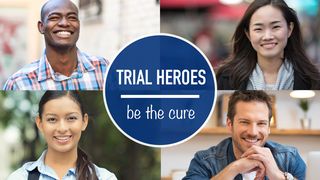If you look at clinical trials in terms of supply and demand, we have a demand problem, and there are two sources for that demand: doctors and patients. Unfortunately, most doctors are overworked and don’t have the time to keep up on all the trials available. Even if doctors are aware of potential trials, they may be more comfortable with tried and true treatment plans rather than experimenting with a patient’s treatment (1). This means we have to create demand from the patient side. There are two primary issues that affect the patient and they are stigmatization of clinical trials (2) due to perceived level of risk and knowledge of current trial availability (3).
Initially soliciting stories from patients could be a challenge given concerns regarding privacy and also the importance of not disclosing details about ongoing clinical trials. Our initial strategy would be to reach out to doctors, cancer support groups, and other health-organizations to ask patients to volunteer their clinical trial stories.
We have to be mindful that not all volunteers have positive experiences. Instead of including negative clinical trial experiences we would have an advice section for first time participants ensuring that they understand their rights, know what questions to ask when reading an informed consent and are aware of potential risks not only of taking an investigational drug, but also human error that is unavoidable in every industry.
We believe doubling the accrual rate is quite possible -- the current lack of awareness make the potential for growth quite high. A good story is eminently shareable, so in terms of how long the campaign would take to create an impact it could be quite short. Success would primarily be measured in terms of visits to the website and “shares” of the content. It’s more difficult to obtain data from clinical trial sponsors regarding the patient recruitment sources since many trials do not track this information and it is often proprietary.
Unlike individual trial recruitment campaigns that only exist as long as the study is recruiting, by changing our perception of clinical trial participation across all therapeutic areas the movement will continue grow with time. There is no limit to the sustainability of this approach because each individual that decides to volunteer can be a TrialHero in every stage of their life on multiple trials and will pass on their appreciation and support of the clinical trial research process to their children.
Protecting patient safety and rights must always be the priority in clinical research. The TrialHeroes campaign is focused on shifting our culture's perception of clinical trials in general rather than advertising for a single trial or therapeutic area and therefore would not require IRB review. Nonetheless the TrialHeroes content will adhere to the guidelines outlined in the Code of Federal Regulations and ICH/E6 to ensure that neither the patient stories or the search result information about the clinical trials is coercive or misleading in nature (for example we would not include details about how much you could get paid for participating).
At present, clinical trial recruitment is de-centralized with individual Sponsors and research centers each trying to advertise their trials. While a national effort would benefit all studies and parties involved in clinical research in the long run, individual companies instead focus their investment on their specific trials. There has never before been one organization that champions the idea of clinical trial participation as a civic duty, a point of pride and a way to give back to future generations.
